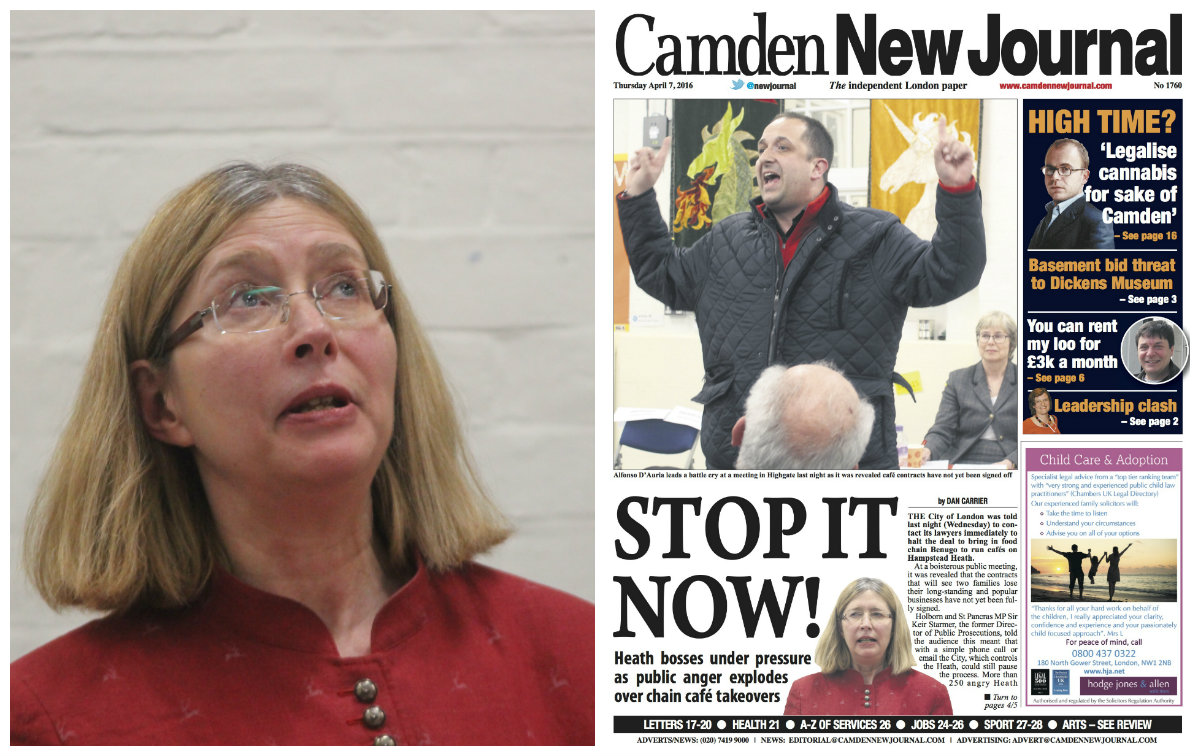Former Camden police chief warns: Public do not seem to care about knife victims that are poor and black
'If they were children of the establishment – of those with power and influence, wealth and a voice – it would be a national scandal'
Sunday, 6th November 2016 — By William McLennan

CAMDEN’S former police commander fears attempts to tackle knife crime are not working, as he warned yesterday (Wednesday) that people seem not to care about victims and assailants who are “mostly poor, frequently black”.
Chief Superintendent John Sutherland warned that law enforcement has only been a “sticking plaster” on the “disease of knife crime” as he appealed for a new focus on understanding what motivates young men to arm themselves.
He said: “If they were children of the establishment – of those with power and influence, wealth and a voice – it would be a national scandal. Because they are mostly poor, frequently black and invariably from challenging inner-city neighbourhoods, it’s tempting to feel that much of the watching world simply doesn’t give a damn.”
Chief Supt Sutherland’s time in charge in Camden is expected to feature in a book about his life, Blue: A Memoir, due to be published in May.
He signed a book deal after drawing positive comments for his blog about policing in London, where he made his latest contribution to the debate on how to stop knife crime.
“We have got to pause for more than a moment or two to understand what it is that we’re actually dealing with – to understand why the hell a young man would pick up a knife in the first place, never mind decide to use it,” said Chief Supt Sutherland, who was Camden police chief between 2010 and 2012 and now works at Scotland Yard.
He recalled joining a packed congregation at the funeral of 16-year-old knife victim Ben Kinsella in 2008 and standing at the scene of the murder of Milad Golmakani, stabbed to death by a group of teenagers in a Swiss Cottage playground in 2011.
He said these memories were “seared into my soul”, asking: “How many more lives is it going to take?”
None of the measures deployed, including metal detectors and tougher prison sentences, could provide an ultimate solution, he said. Instead, he listed a raft of possible social and economic factors – such as poverty, a “broken home” and exclusion from education – which he said were “typical” of many of the knife crime suspects he has encountered in his 24-year career.
“Stopping [the suspect] in the street and searching him for weapons may well prevent the unthinkable, but it won’t come close to addressing what lies beneath,” he added.
Chief Sup Sutherland asked where a young knife crime suspect could take his influences in the absence of a “positive, nurturing adult involvement in his life”.
Answering his own question, he said: “Inevitably, from the endlessly and astonishingly violent video games and films that flood our screens – together with the misogynistic and abusive music and stunningly graphic internet feeds that accompany them. Combined with the desensitising effects of real horror played on 24-hour news loops, is it any surprise that vulnerable young men think very little of resorting to the use of weapons?”
Police in Camden this week posted a picture of a shocking haul of knives seized as part of the Met’s anti-knife crime initiative, Operation Sceptre, along with the hashtag #makingcamdensafer.